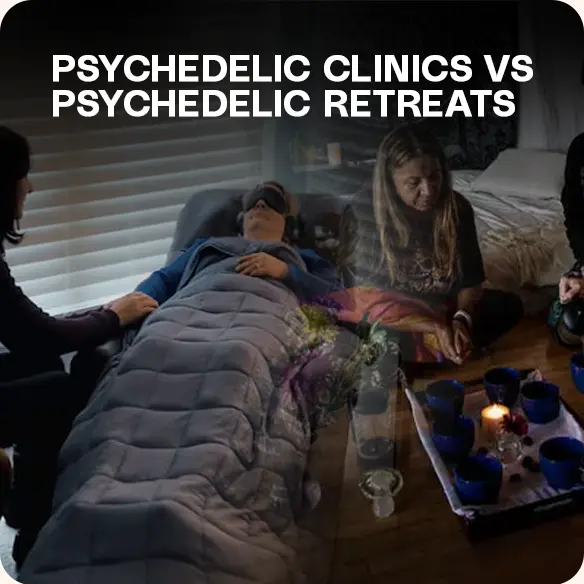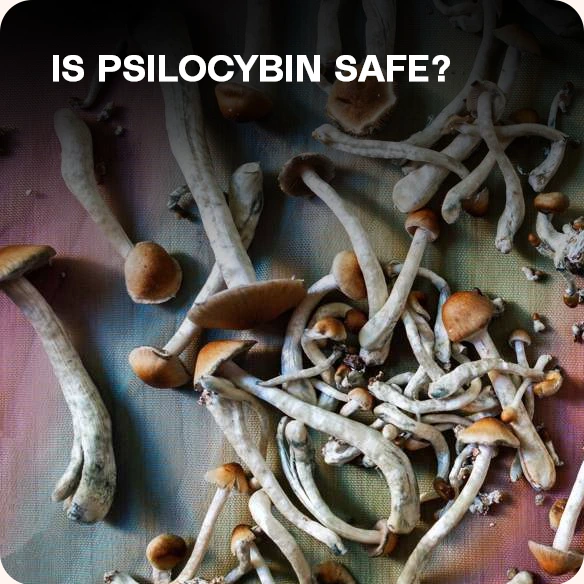Microdosing psilocybin may help treat ADHD, especially in adults with severe ADHD symptoms. Studies show it can reduce symptom severity and improve emotion regulation.
However, more placebo-controlled research is needed to confirm these benefits and ensure safety before widespread use.
This article explores the potential of microdosing psilocybin for managing ADHD symptoms, building on previous research and highlighting recent findings while considering its place alongside traditional treatments.
Key Takeaways:
- Microdosing psilocybin may help reduce ADHD symptoms and improve focus, mindfulness, and emotional regulation.
- Unlike traditional stimulants, microdosing offers a gentler, non-addictive approach with fewer side effects.
- Medical guidance is essential—improper dosing or self-experimentation can lead to anxiety or overstimulation.
What is Microdosing Psilocybin?
Microdosing psilocybin is the practice of taking small amounts of magic mushrooms to support mental and emotional well-being while minimizing side effects.
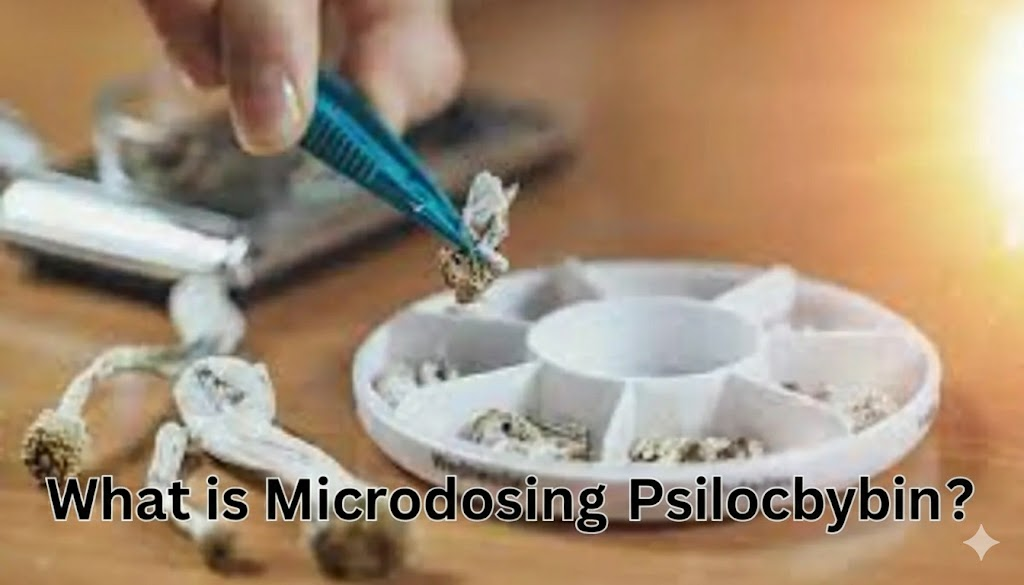
In microdosing research, the term ‘md substance’ refers to the specific psychedelic compounds used, such as psilocybin, LSD, or other lysergamides, with studies often tracking the type and dosage of these substances over a defined period.
This practice is believed to enhance creativity, focus, and emotional balance without producing intense visual hallucinations or profound shifts in perception associated with higher doses.
Interest in microdosing has surged within the ADHD community as individuals seek alternative methods to manage symptoms, spurred by anecdotal reports and emerging research on its potential cognitive and therapeutic benefits.
When exploring microdosing for ADHD, people may use multiple answers or approaches, such as trying different protocols or combining various md substances.
If you want to dive deeper into microdosing, please check our guide and explore what microdosing is.
What is Attention Deficit Hyperactivity Disorder (ADHD)?
ADHD, or Attention-Deficit Hyperactivity Disorder, is a neurodevelopmental condition characterised by persistent patterns of inattention, hyperactivity, and impulsivity.
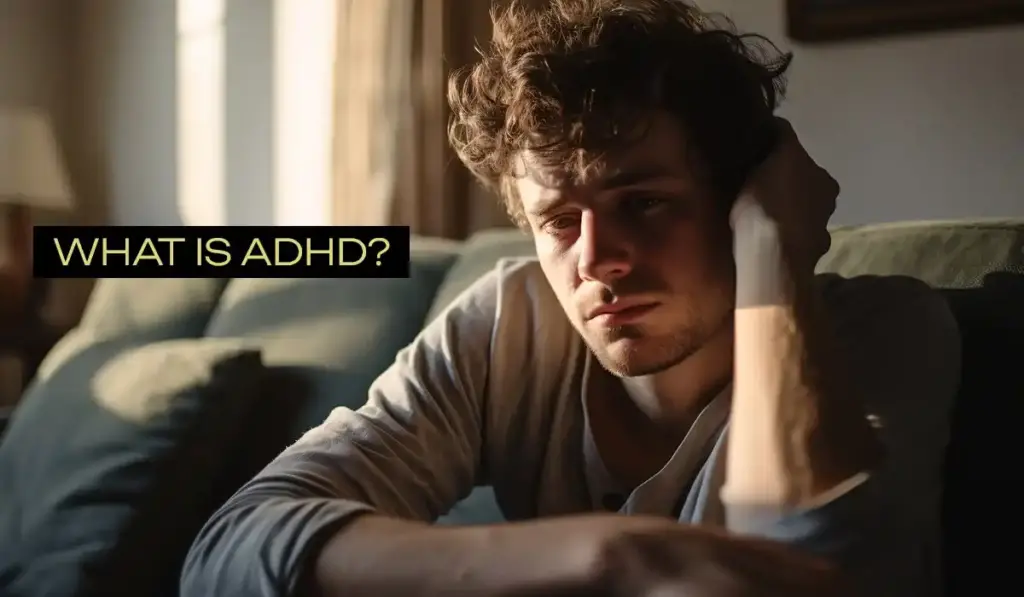
Diagnosed through a combination of behavioural assessments and medical evaluation, ADHD affects individuals’ ability to function in daily activities and maintain relationships.
An ADHD diagnosis in adults often relies on criteria from the DSM-IV adult ADHD guidelines. Clinicians commonly use standardized tools such as the ADHD symptom scale and the ADHD index to assess ADHD symptoms and severity.
These validated questionnaires are administered at baseline and follow-up to assess ADHD symptoms over time.
Clinically elevated symptoms are identified using these scales, typically by comparing individuals to a control group of the same age range, with a T-score of 65 or above indicating clinically elevated symptoms.
Traditional treatments include medication, such as stimulants (Ritalin, Adderall, Vyvanse), and behavioural therapies aimed at managing symptoms, such as behaviour therapy, social skills training, and cognitive behaviour therapy.
The impact of ADHD extends beyond daily challenges, potentially influencing long-term mental health and social well-being, prompting individuals and researchers to explore alternative treatment methods like microdosing psilocybin and other holistic approaches.
For those seeking a gentle and balanced way to support focus and emotional regulation, Calm Microdosing Capsules can serve as a mindful option within a broader wellness plan.
What is Conventional ADHD Treatment?
Conventional ADHD treatment usually involves medications like stimulants (amphetamine-based or methylphenidate-based) and non-stimulants such as atomoxetine.
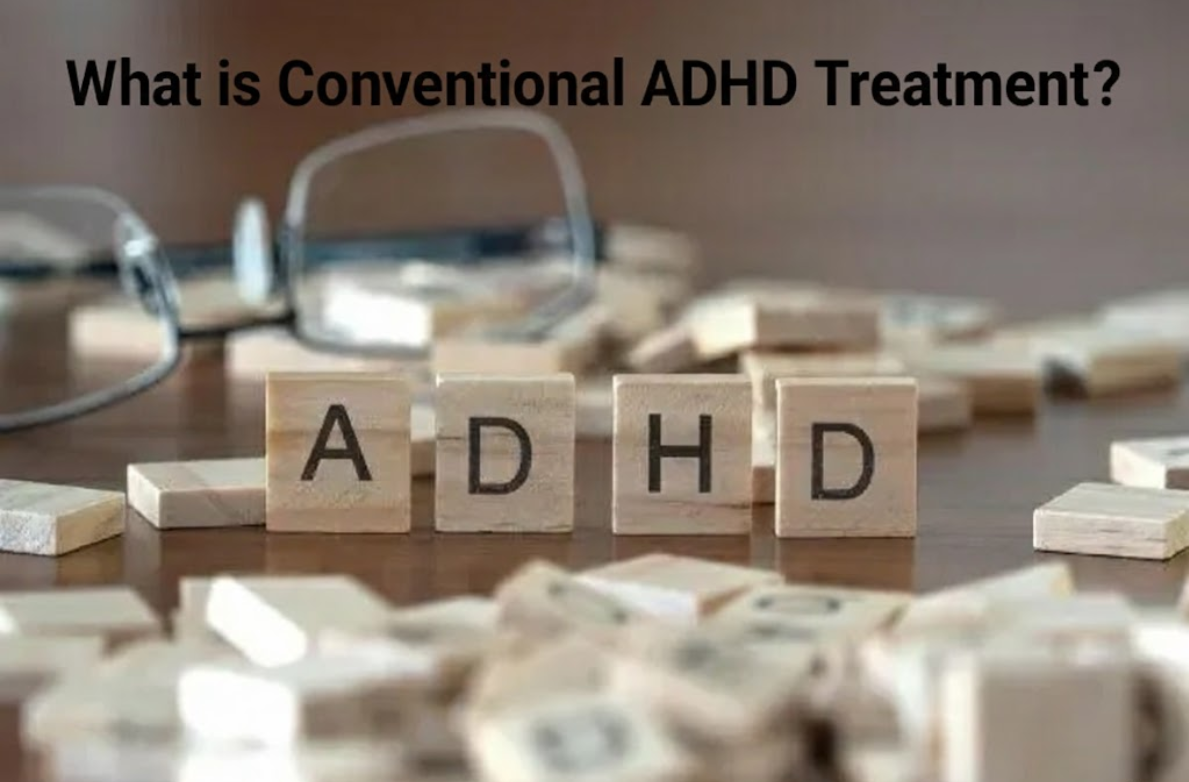
These medications help increase brain chemicals to reduce symptoms. Behavioral therapies, including cognitive-behavioral therapy, support managing daily challenges and emotional regulation.
Conventional ADHD treatment usually involves medications like stimulants (amphetamine-based or methylphenidate-based) and non-stimulants such as atomoxetine.
These medications help increase brain chemicals to reduce symptoms. Behavioral therapies, including cognitive-behavioral therapy, support managing daily challenges and emotional regulation.
Alongside these traditional methods, growing interest in microdosing capsules has emerged as individuals explore gentler, more holistic ways to support focus, mindfulness, and emotional balance.
Conventional treatment for attention deficit hyperactivity disorder (ADHD) typically combines medication and behavioral therapy to address core ADHD symptoms such as inattention, hyperactivity, and impulsivity.
The most commonly prescribed ADHD medications are stimulants, including amphetamine-based and methylphenidate-based drugs, which work by increasing dopamine and norepinephrine levels in the brain.
Non-stimulant options, such as atomoxetine, are also available for those who may not respond well to stimulants or experience unwanted side effects.
Behavioral therapies, including cognitive-behavioral therapy (CBT), are often recommended alongside medication to help individuals develop practical strategies for managing daily challenges associated with ADHD.
These therapies can improve organization, time management, and emotional regulation, supporting better overall functioning.
However, conventional ADHD treatment does not work equally well for everyone.
Individuals experiencing severe ADHD symptoms or those with comorbid diagnoses—such as anxiety and depression disorder, bipolar disorder, or post-traumatic stress disorder—may find that standard approaches are less effective or come with additional challenges.
For these individuals, the presence of multiple mental health conditions can complicate treatment outcomes and increase the need for alternative or complementary therapies.
This has led to growing interest in exploring new options, such as microdosing psychedelics, where personalized coaching and evidence-based guidance can help determine safe, structured ways to explore this approach responsibly.
What Does the Research Say About Microdosing for ADHD Symptoms?
Research on microdosing for ADHD symptoms, particularly prospective naturalistic studies, suggests that microdosing psychedelics like psilocybin may reduce ADHD symptom severity, enhance emotion regulation, and improve mindfulness.
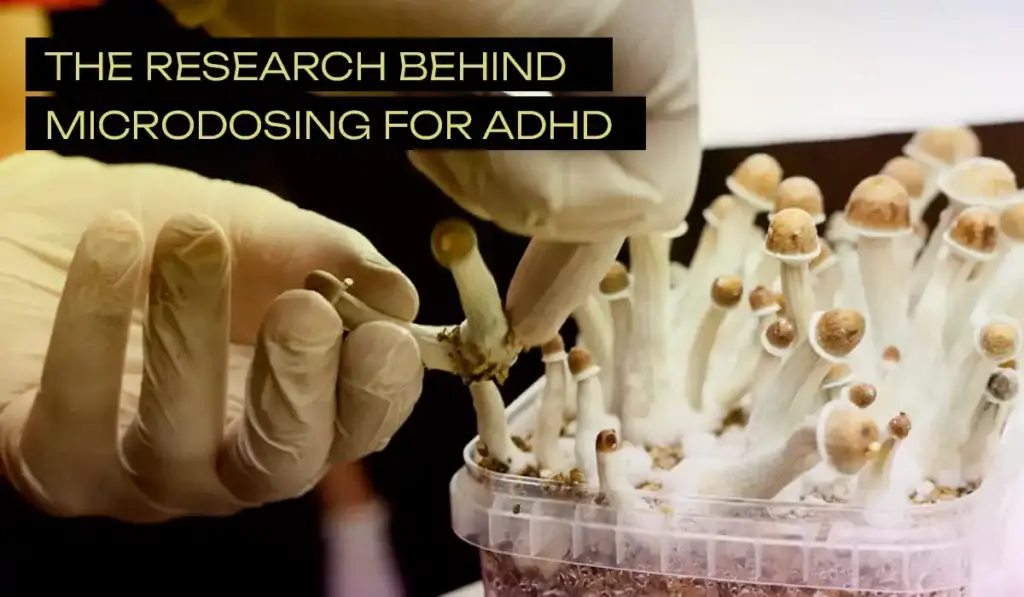
However, more rigorous placebo-controlled studies are needed to confirm these promising findings.
The referenced research was a prospective naturalistic study that began with a baseline survey to collect initial demographic, health, and behavioral data from participants.
Participants were categorized into distinct groups: the MD group (those who self-administered microdoses of psychedelics), those using only MD (exclusively microdosing), and those taking conventional medication alongside MD.
The process of MD initiation was tracked, with follow-up assessments conducted after participants began microdosing.
Studies suggest that microdosing psilocybin could offer benefits in managing ADHD symptoms, improving emotion regulation, and even affecting empathy, compared to traditional ADHD medications.
The outcomes of MD compared to conventional medication were analyzed, with particular attention to MD effects on ADHD symptoms and emotion regulation.
The findings are detailed in a recent research paper titled “Trait mindfulness and personality characteristics in a microdosing ADHD sample: a naturalistic prospective survey study,” published in Frontiers in Psychiatry. [Read the full paper here]
Descriptive statistics were used to summarize participant characteristics, diagnoses, medication types, and doses.
To ensure data quality, responses with a completion time below 50% of the median response time were excluded.
The main statistical analyses employed included linear mixed model (LMM) approaches to assess changes in dependent variables such as ADHD symptoms and emotion regulation over time.
Analyses were conducted using IBM SPSS Statistics version 26. Corrections for multiple comparisons were applied to control for Type I errors.
The studies reported significant interaction effects between time and medication use, indicating that the relationship between variables changed over time or across groups.
If figures are referenced, error bars represent the mean ± SEM (Standard Error of the Mean).
Here are 5 essential findings:
- Increased Mindfulness: Microdosing led to enhanced mindfulness, specifically in the areas of non-judging of inner experiences, suggesting a potential for improved attentional focus and emotional regulation.
- Reduced Neuroticism: Participants exhibited a significant decrease in neuroticism after four weeks of microdosing, indicating a potential reduction in negative emotional states associated with ADHD.
- Overall Personality Remains Stable: While neuroticism decreased, other personality traits (conscientiousness, extraversion, agreeableness, and openness) remained unchanged, suggesting that microdosing may specifically target aspects of emotional stability without altering overall personality structure.
- No Influence from Conventional Medication or Comorbidities: The study found that the effects of microdosing on mindfulness and personality traits were not affected by the concurrent use of conventional ADHD medication or the presence of comorbid diagnoses; although it did take longer for those using traditional medications while microdosing to see benefits.
- Need for Placebo-Controlled Studies: The research underlines the importance of future placebo controlled studies with controlled settings to confirm these findings and explore the long-term effects of microdosing on ADHD symptoms.
A follow-up study by the same group was conducted to continue investigations on the effects of microdosing on emotional regulation and empathy in those with ADHD. Unlike the first study, the follow-up also included a control group.
Here are three essential findings:
- Microdosing Improves ADHD Symptoms: Participants who microdosed reported a significant reduction in ADHD symptoms compared to those using conventional medication, particularly after four weeks of microdosing.
- Enhanced Emotion Regulation: The study observed positive effects on emotion regulation among microdosers. These effects were likely due to a component of emotional regulation, called expressive suppression, which refers to one’s ability to control their facial reactions to emotion.
- Effects on Empathy: The results of the follow-up study did showed no impact on measures of empathy in the microdosing group.
Researcher Eline Haijen is one of the Ph.D. pioneers who conducted the above research at Maastricht University. In a podcast from Jan 2023, she summarizes the results by stating:
“[During the microdosing and ADHD study], we found that ADHD symptoms were decreased after two weeks [of microdosing], and further after four weeks; Well-being was increased after two weeks and stayed at the same level after four weeks. This is in line with what people report anecdotally. ”
The studies referenced suggest that microdosing psilocybin could offer benefits in managing ADHD symptoms, potentially by offering mechanisms to improve emotional regulation compared to traditional ADHD medications.
However, these prospective naturalistic studies highlight the need for further, more rigorous research to validate these findings fully, particularly through future placebo controlled studies.
For an in-depth explanation of how psilocybin might rewire the brain, check this article.
What are personal experiences from the online microdosing community?
Personal experiences from the online microdosing community highlight a variety of positive outcomes for individuals managing ADHD.
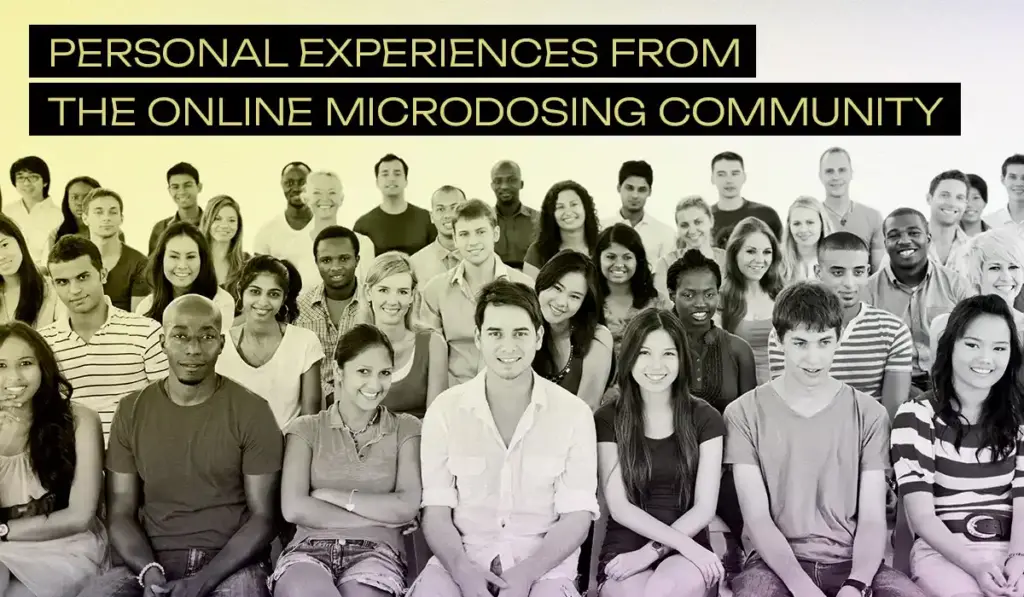
Many users report significantly reducing or completely discontinuing their conventional ADHD medications, such as Ritalin, often finding microdosing to be more effective, enjoyable, affordable, and with fewer side effects compared to traditional stimulant treatments.
In a Reddit thread under the name r/microdosing, many microdosers with ADHD share their anecdotal experiences with microdosing.
Many individuals begin microdosing on their own initiative, without medical supervision or participation in formal studies. Below are a few of their experiences:
“I’ve been doing 1-2 shroom MD days/week and generally 2 lsd days, and I love it. I still take a bit of my ADHD meds here and there, but I’d say my consumption is down to less than 20% of my prescribed dose and my symptoms more in check than they have been in years.”
“I’ve completely weaned off of my Ritalin.”
“It helps way way more than stimulants for me. Took stimulants for 13 years. Microdosing is superior, cheaper, more fun and meaningful, and less bad for you.”
While these personal stories do not validate microdosing as an effective tool for managing ADHD symptoms, they do give rise to the need for more scientific research to explore microdosing as an alternative for ADHD support.
How Does Microdosing Compare to Conventional ADHD Medication?
Microdosing psilocybin differs from conventional ADHD medication by promoting subtle cognitive and emotional regulation rather than rapid neurochemical stimulation.
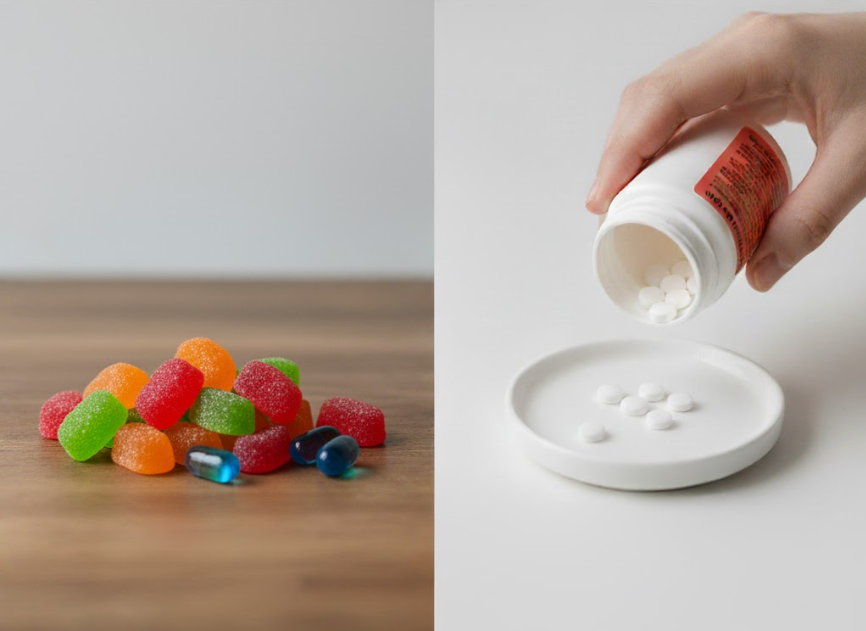
Unlike stimulants such as Adderall or Ritalin, microdosing aims to enhance focus, creativity, and emotional balance without causing dependency, crashes, or major side effects.
Recent research has begun to compare the effects of microdosing (MD) with conventional ADHD medication use, particularly in adults experiencing severe ADHD symptoms.
In a naturalistic prospective comparison study, researchers assessed ADHD symptoms, emotion regulation, and empathy in adults with severe ADHD symptoms, some of whom also had comorbid diagnoses alongside ADHD.
The study found that microdosing was associated with positive effects on ADHD symptoms, including a noticeable reduction in symptom severity over time.
Participants who engaged in MD reported improvements in emotion regulation strategies, such as cognitive reappraisal and expressive suppression, which are important for managing the emotional challenges often seen in ADHD.
In contrast, those using conventional ADHD medication showed stable or even higher expressive suppression scores, suggesting that traditional medication may have limited impact on certain aspects of emotion regulation.
While the study did not find conclusive evidence that microdosing improved empathy, the overall results indicate that MD could be a promising alternative or complementary approach to conventional ADHD medication, especially for adults with severe ADHD symptoms and comorbid diagnoses.
These findings highlight the need for further research, including placebo-controlled studies, to better understand the therapeutic potential of microdosing for ADHD treatment and to assess its long-term safety and effectiveness compared to standard medication use.
For those exploring a natural and sustainable way to improve attention and cognitive balance, Focus Microdosing Capsules provide a structured approach to support concentration and mental clarity without overstimulation.
What Are the Risks and Considerations of Microdosing for ADHD?
Microdosing for ADHD carries potential risks and considerations, including inconsistent dosing, unknown long-term effects, and legal restrictions.
While some users report improved focus and mood, others experience anxiety, overstimulation, or disrupted sleep.
Potential side effects and health risks of microdosing for ADHD may include inability to focus, anxiety, or increased emotional states that are challenging to regulate.
Often, these side effects are a result of taking a dose that is too high. See a full list of potential side effects here.
Given the experimental nature of microdosing and the legal status of substances often used, individuals should approach microdosing with ADHD cautiously.
Consulting with a psychedelic-friendly medical doctor is crucial to evaluating personal health and potential medicine interactions.
Be sure to discuss your prescribed medication and prescribed ADHD medication history with your medical doctor, including any current or past use, reasons for discontinuation, and side effects experienced.
Additionally, disclose any psychiatric and physiological diagnoses, such as any physical disorder or chronic pain, to your healthcare provider before starting microdosing.
A medical professional can offer personalized advice and ensure that any treatment approach, including microdosing, aligns with your overall health strategy.
To avoid potential risks and ensure safe, guided practice, consider booking a 1-Hour Coaching Call with a certified Microdosify Coach. Personalized coaching helps you:
- Understand safe dosing protocols tailored to your goals
- Identify and avoid triggers for overstimulation or anxiety
- Integrate mindfulness techniques to maintain emotional balance
Taking this step ensures your microdosing journey is safe, structured, and supported by professionals who understand both the science and the experience behind it.
What Does the Future Hold for Microdosing as a Treatment for ADHD?
The future of microdosing as a treatment for ADHD remains promising but uncertain. Early studies and anecdotal reports suggest that microdosing psilocybin may enhance focus, emotional balance, and overall cognitive flexibility, offering a gentler alternative to traditional medication.
Microdosing psilocybin shows potential as an alternative method of supporting ADHD, with recent research suggesting improvements in mindfulness, emotional regulation, and reduced neuroticism without altering core personality traits.
These findings point to possible therapeutic effects, such as symptom relief and enhanced well-being.
While this new research is exciting, they do underline the need for future research to confirm the therapeutic effects of microdosing for ADHD, including long-term outcomes and optimal dosing strategies.
While anecdotal evidence from the ADHD community points toward benefits, weighing the risks and legal considerations is crucial.
Those interested in exploring microdosing further may consider booking a 1:1 Microdosing Coaching Call with a Microdosify Coach for tailored guidance, or exploring our Microdosing Resource to begin their journey with the right tools and information.
You can also learn more about psilocybin microdosing protocols and explore our product collection to find a setup that aligns with your wellness goals.
Sources:
- Vollenweider, F. X., & Kometer, M. (2010). The neurobiology of psychedelic drugs: implications for the treatment of mood disorders. Nature Reviews Neuroscience, 11(9), 642-651.
- Carhart-Harris, R. L., Bolstridge, M., Day, C. M. J., Rucker, J., Watts, R., Erritzoe, D. E., … & Nutt, D. J. (2018). Psilocybin with psychological support for treatment-resistant depression: an open-label feasibility study. The Lancet Psychiatry, 5(5), 356-362.
- Johnson, M. W., Garcia-Romeu, A., & Griffiths, R. R. (2017). Long-term follow-up of psilocybin-facilitated smoking cessation. The American Journal of Drug and Alcohol Abuse, 43(1), 55-60.
- Anderson, T., Petranker, R., Rosenbaum, D., Weissman, C. R., Dinh-Williams, L. A., Hui, K., … & Kometer, M. (2019). Microdosing psychedelics: Personality, mental health, and creativity differences in microdosers. Psychopharmacology, 236(2), 731-740.
- Nichols, D. E. (2016). Psychedelics. Pharmacological Reviews, 68(2), 264-355.
- Tupper, K. W., & Wood, E. (2017). Yawning at the abyss: Current knowledge and future directions in the study of psychedelics and anxiolytic effects. Current Opinion in Psychiatry, 30(5), 363-372.
Frequently Asked Questions about Microdosing for ADHD
Can I microdose while on conventional ADHD medication?
Yes, it is likely safe to microdose while on traditional ADHD medication. Research, such as the study from Frontiers in Psychiatry, indicates that individuals on conventional ADHD medications can still experience benefits from microdosing. However, it may take longer to observe these effects.
However, it’s crucial to approach this carefully and consult a healthcare provider to ensure safety and manage any potential medication interactions.
Can microdosing replace my current ADHD medication?
Further research is needed to fully understand the potential of microdosing to replace traditional ADHD medication. It’s essential to consult with a medical professional before making any changes to your medication regimen.
What is the best protocol for microdosing with ADHD?
The best protocol for microdosing with ADHD hasn’t been universally established due to individual differences and the experimental nature of microdosing.
Well-known microdosing protocols include the Fadiman protocol, where individuals take a microdose every three days, and the Stamets protocol, suggesting five days on followed by two days off.
These protocols aim to optimize the benefits while minimizing tolerance. Always consult with a healthcare professional before starting any new regimen.
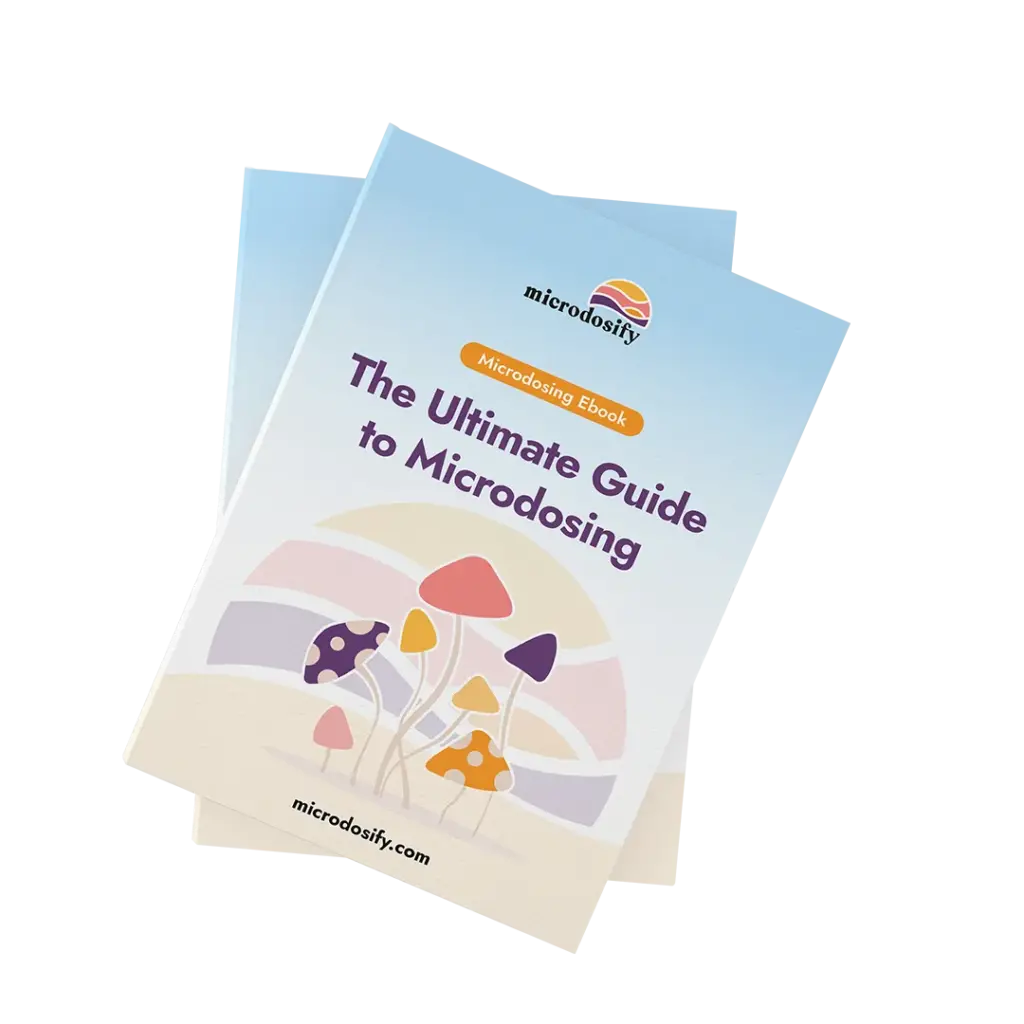

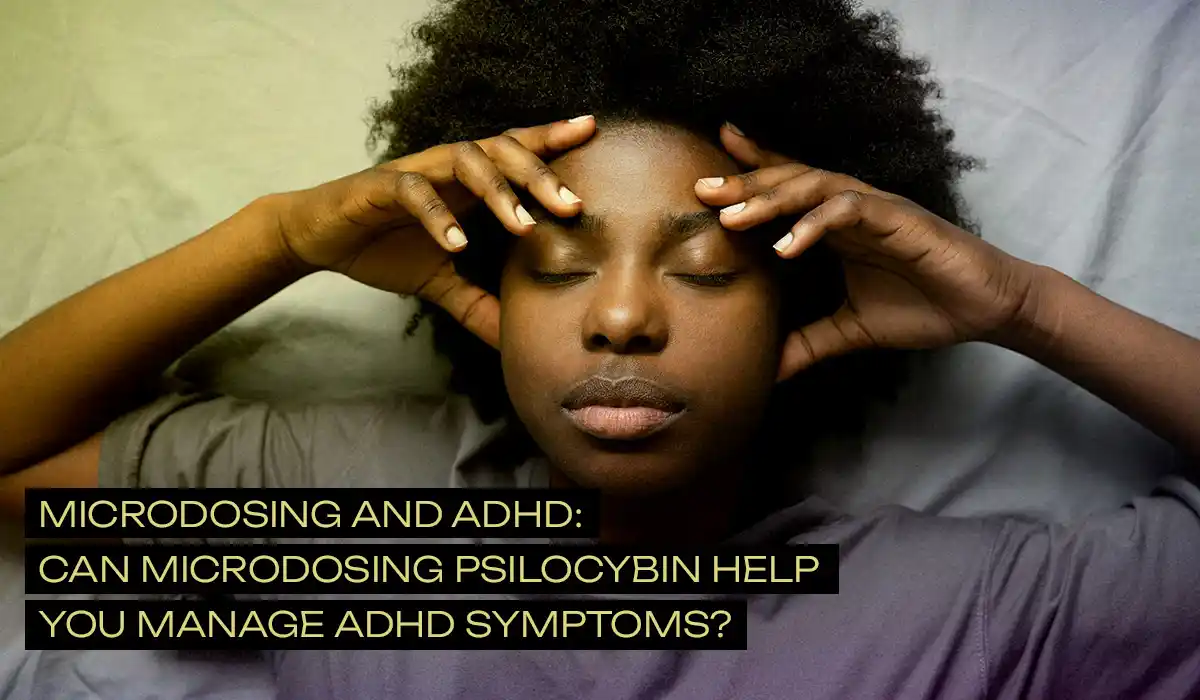
 15 min read
15 min read